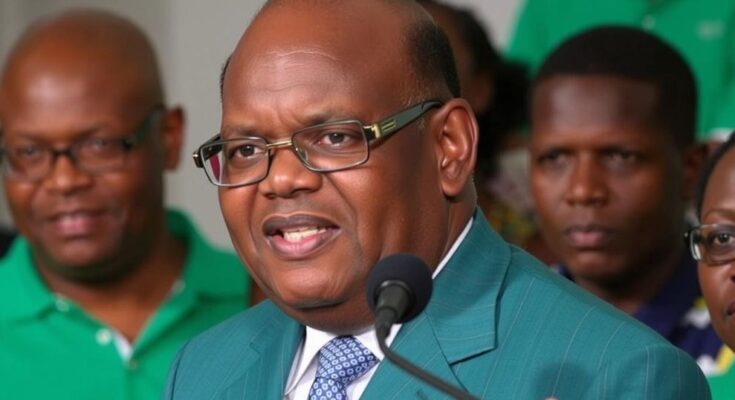Mozambique’s top court has confirmed the ruling Frelimo party’s victory in the October presidential elections, with Daniel Chapo receiving 65.2% of the vote. Allegations of electoral fraud have fueled ongoing protests, resulting in violence and disruption. Opponent Venâncio Mondlane garnered 24.2%, reflecting growing discontent among voters, particularly the youth. This electoral outcome may provoke further unrest and calls for reform amid broader political challenges.
Mozambique’s highest court has validated the ruling party’s success in the October presidential elections, a decision that may incite further protests following two months of unrest over accusations of electoral manipulation. Daniel Chapo, representing the Frelimo party, was declared the winner with 65.2% of the ballot, a figure reduced from the election commission’s earlier announcement of 70.7%, yet it still surpasses the necessary majority of 50%. The opposition leader, Venâncio Mondlane, garnered 24.2% support, which remains insufficient to claim victory.
The constitutional council’s report indicated “discrepancies” in vote counting at the district level but did not provide specific reasons for these anomalies. Additionally, it criticized the Podemos party, affiliated with Mondlane, for allegedly presenting exaggerated vote totals in their challenge. Mozambique has experienced significant unrest, with reports indicating that security forces killed at least 130 individuals amidst widespread protests, although international observers have noted evidence of ballot rigging without conclusively determining the fairness of the election.
The ongoing protests have caused substantial disruptions to Mozambique’s economy, exacerbated by the impact of Cyclone Chido, which resulted in numerous fatalities and widespread destruction of homes. Amidst the unrest, Mondlane has encouraged his supporters to abstain from violence and to await further developments before taking action. In a contrasting tone, he expressed that electoral integrity is crucial for maintaining peace, suggesting that a lack thereof could lead to instability.
Following the court’s ruling, scenes of civil unrest, including burning tires, were reported despite the streets being largely deserted aside from armed security personnel. Chapo, preparing to assume office on January 15, promised to initiate an electoral reform dialogue, emphasizing that collaboration is essential for fostering social unity, albeit lacking specific details about this process. This situation reflects a shift in Mozambique’s political landscape, with a formerly dominant party facing challenges from an emergent and discontented youth movement led by a formidable opposition figure, according to political analysts.
The recent election in Mozambique has stirred significant controversies, primarily involving allegations of rigged results and a deteriorating relationship between the ruling party and the opposition. The ruling Frelimo party has been in control for decades, yet emerging leaders, particularly among younger voters, are beginning to challenge this dominance. Following the presidential elections, public protests highlighted deep-seated frustrations over electoral integrity and governance. The convergence of these political tensions with humanitarian crises, such as natural disasters, has intensified the urgency for reform and better representation in Mozambique’s political sphere.
The confirmation of election results by Mozambique’s top court has resulted in escalating tensions and potential for increased civil unrest. While the ruling party maintains its hold on power, the significant support for the opposition reveals a shifting political landscape. The ongoing protests and violent backlash signify a critical moment where public discontent is manifesting into political action, challenging the long-standing dominance of Frelimo and calling for a reassessment of electoral processes and governance.
Original Source: www.theguardian.com




